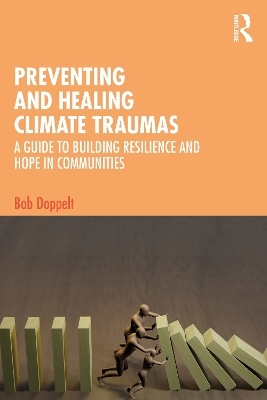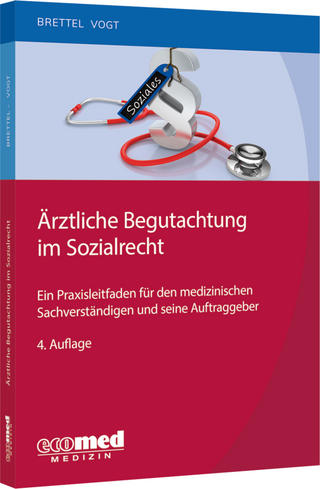
Preventing and Healing Climate Traumas
Routledge (Verlag)
978-1-032-20020-0 (ISBN)
This book describes how to use a public health approach to build universal capacity for mental wellness and transformational resilience by engaging community members in building robust social support networks, making a just transition by regenerating local physical/built, economic, and ecological systems, learning how trauma and toxic stress can affect their body, mind, and emotions as well as age and culturally tailored mental wellness and resilience skills, and organizing group and community-minded events that help residents heal their traumas. These actions build community cohesion and efficacy as residents also engage in solutions to the climate emergency.
This book is essential reading for grassroots, civic, non-profit, private, and public sector mental health, human services, disaster management, climate, faith, education, and other professionals, as well as members of the public concerned about these issues. Readers will come away from this book with practical methods—based on real-world examples—that they can use to organize and facilitate community-based initiatives that prevent and heal mental health and psycho-social-spiritual problems and reduce contributions to the climate crisis.
Bob Doppelt coordinates the International Transformational Resilience Coalition (ITRC), a global network working to prevent and heal the mental health and psycho-social-spiritual problems generated by the climate emergency.
Introduction 1
Part I A Public Health Approach is Required to Build Population-Level Capacity for Mental Wellness and Transformational Resilience for the Long Climate Emergency
1 Climate Overshoot “101”
2 The Causes and Consequences of Individual, Community, and Societal Traumas
3 Elements of a Public Health Approach to Enhancing Mental Wellness and Transformational Resilience for the Long Climate Emergency
Part II Organizing and Operating Community-Based Initiatives that Build Universal Capacity for Mental Wellness and Transformational Resilience
4 Get Organized
5 Begin Building Community Capacity for Mental Wellness and Transformational Resilience
6 Establish RCC Goals, Objectives, Strategies, and Action Plans
Part III The Five Foundational Areas RCCs Must Emphasize to Enhance Universal Capacity for Mental Wellness and Transformational Resilience for the Long Climate Emergency
7 Build Social Connections across Boundaries in the Community
8 Ensure a Just Transition by Creating Healthy, Safe, Just, and Equitable Climate-Resilient Local Physical/Built, Economic, and Ecological Conditions
9 Cultivate Universal Literacy about Mental Wellness and Resilience
10 Foster Engagement in Specific Practices that Support Mental Wellness and Resilience
11 Establish Ongoing Opportunities for Residents to Heal Their Distresses and Traumas
12 Continually Track Progress, Learn, Improve, and Plan for the Long Term
Conclusion: The Need for a Global Movement to Enhance Universal Capacity for Mental Wellness and Transformational Resilience for the Civilization-Altering Climate Emergency
| Erscheinungsdatum | 13.03.2023 |
|---|---|
| Zusatzinfo | 29 Line drawings, black and white; 4 Halftones, black and white; 33 Illustrations, black and white |
| Verlagsort | London |
| Sprache | englisch |
| Maße | 152 x 229 mm |
| Gewicht | 340 g |
| Themenwelt | Sachbuch/Ratgeber ► Gesundheit / Leben / Psychologie |
| Medizin / Pharmazie ► Medizinische Fachgebiete ► Arbeits- / Sozial- / Umweltmedizin | |
| Medizin / Pharmazie ► Medizinische Fachgebiete ► Psychiatrie / Psychotherapie | |
| Naturwissenschaften ► Biologie ► Ökologie / Naturschutz | |
| Technik ► Umwelttechnik / Biotechnologie | |
| ISBN-10 | 1-032-20020-0 / 1032200200 |
| ISBN-13 | 978-1-032-20020-0 / 9781032200200 |
| Zustand | Neuware |
| Haben Sie eine Frage zum Produkt? |
aus dem Bereich


